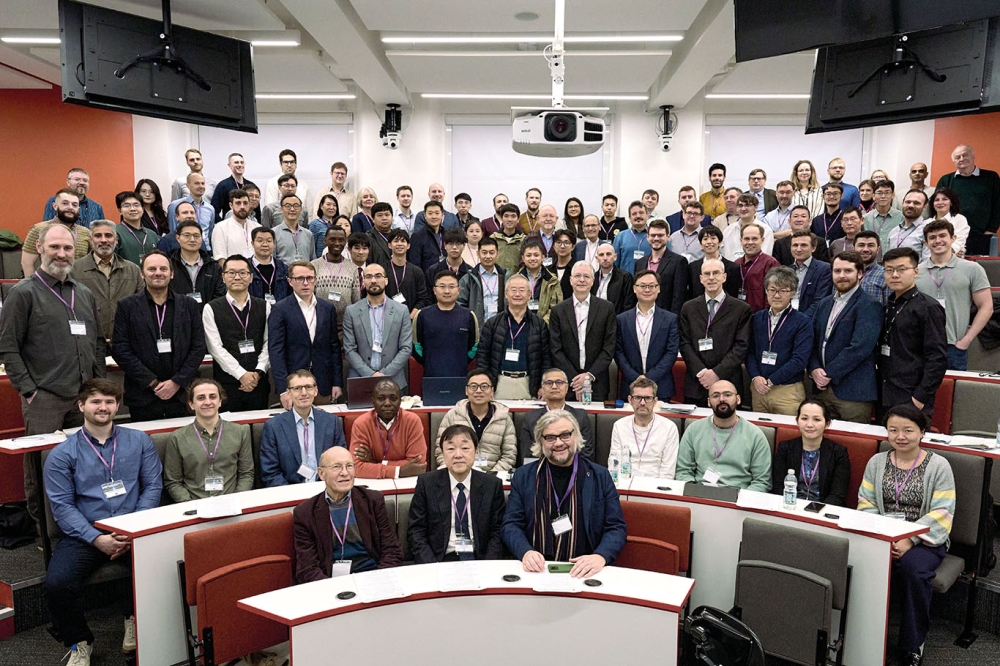GaAs industry steady amid silicon gloom
Continued strong demand for smartphones and WiFi-enabled notebook PCs will sustain the GaAs industry in 2009 while the wider semiconductor sector endures its eleventh recession.
But although semiconductor industry analysts are predicting a tough year ahead, 2009 is not expected to emulate the severe downturn seen in 2001, triggered by the collapse of the dot-com bubble and exacerbated by the September 11th attacks on the US.
"The 2001 slowdown was unique, in that it was triggered by both demand and supply-side issues simultaneously," wrote Future Horizons Malcolm Penn in his November 2008 report on the global semiconductor business. "Everything that could go wrong did go wrong."
That was because semiconductor manufacturers were left with masses of inventory on their shelves just at the time when excess capacity was coming on stream.
Although he does concede that there "will be blood on the road ahead", Penn believes that the circumstances of the current market decline are completely different to those seen eight years ago:
"We have no serious overcapacity in place...and prior to the financial meltdown there was little sign of inflated demand and no serious excess inventory in the supply chain," wrote the analyst.
However, the slowdown will continue to hit equipment vendors, who are already suffering from a steep drop in fab construction spending.
The latest forecast from SEMI suggests that although worldwide fab capacity will have grown by 5 per cent in 2008, equipment sales have dropped nearly 28 per cent on the 2007 figure to $30.91 billion.
2009 will see a further decline of around 21 per cent, before a strong recovery anticipated in 2010. SEMI president Stan Myers said of the current situation, “Impaired or non-existent business trend visibility is pervasive amidst the deteriorating global economy.”
SEMI s 2010 scenario is therefore only based on previous semiconductor industry cycles, although Penn concurs, suggesting that 2010 will see “a robust and high-growth recovery”.
Strategy Analytics GaAs industry specialist Asif Anwar believes that although the recession will inevitably have an impact on key applications, the outlook for the compound semiconductor niche remains much healthier than for the silicon industry.
Prior to the financial storm, Anwar had been predicting GaAs industry growth of 9 per cent in 2008. Although that and future growth will be impacted, the effect will be a marginal one, he says.
“At the top level, we think that handset sales will contract by 1 per cent in 2009,” the analyst told compoundsemiconductor.net. “And this will impact the market demand for GaAs devices.”
As Anwar points out, industry trends will mitigate this effect. These include the increasing popularity of smartphones, which contain more GaAs than regular handsets, and the resilience of the notebook PC market, an important application for GaAs-based Wi-Fi components.
“The key thing is that we are not looking at a 2001 scenario,” he said, echoing Penn s assessment of the wider industry. “Although there is a macroeconomic slowdown, there is no inventory build-up this time.”
After the 2001 recession, the GaAs industry took two or three years to recover from its 2000 peak, Anwar explained. “This time the overall metrics are strong, and there is still no silicon solution for power amplifiers around the corner.”
Currently working on an update to his GaAs industry forecast, Anwar says that although previous predictions will need to be trimmed, the GaAs industry will not fall into recession itself this time around.
“Maybe growth will not be as strong as we would have liked, but I don t think that we will get a contraction,” he said.































